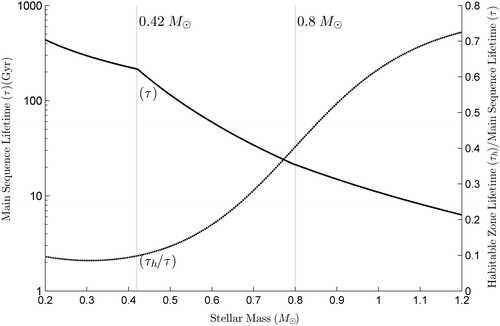Bad news, or good news? According to some new astrobiological research, our time here on Earth is finite, and we better find our way off it sooner rather than later.
The results of this research group from England’s University of East Anglias show that as our Sun gets older, it will get larger and warmer, eventually resulting in the Earth becoming uninhabitable — first to humans and other complex life in fairly short order, and then, in around 1.75 to 3.25 billion years, to all cellular life.
How long will our Earth remain habitable?
Many factors dictate a planet’s habitability. In this study, the astrobiologists focused on how long Earth-like planets remain in the habitable zone of main sequence stars. Basically, most stars adhere to the main sequence — an order of events that begins with a star becoming dense enough to fuse hydrogen into helium. Over time, the temperature of these stars increase dramatically until they start to run out of hydrogen. As the star gets hotter, nearby planets also get warm up, until eventually they become uninhabitable, i.e. lack of surface water.
The paper results underline that Sun’s increasing warmth will push our planet Earth out of the habitable zone in around 1.75 billion years, with an upper bound of around 3.25 billion years, depending on the model used.
Of course conditions for humans and other complex life will become impossible much sooner – and this is being accelerated by anthropogenic climate change. Humans would be in trouble with even a small increase in temperature, and near the end only microbes in niche environments would be able to endure the heat. (author of study)
What are the periods of habitability on other exoplanets
As part of the same study, the astrobiologists also investigated the length of the habitable phase for other exoplanets, such as Kepler 22b and Gliese 581d, which are both theorized to be within their parent star’s habitable zone. While 22b’s habitable phase is around the same length as Earth’s (4.3 to 6.1 billion years), Gliese 581d, due to the nature of its orbit around its small home star, is expected to be habitable for around 55 billion years.
How long planets remain in the habitable zone, versus host star size. (Smaller stars’ habitable zones last longer.)
So, it’s very, very likely that there are other planets in the universe that have managed to cultivate lifeforms during their multi-billion-year tenure in the habitable zone.
And this is good news for humans: Assuming we can find a way off this planet in the not-too-distant future, we should have no problem finding a planet that can host us for a few billion years. (SOURCE)
Find full paper here.
Follow us: Facebook and Twitter














